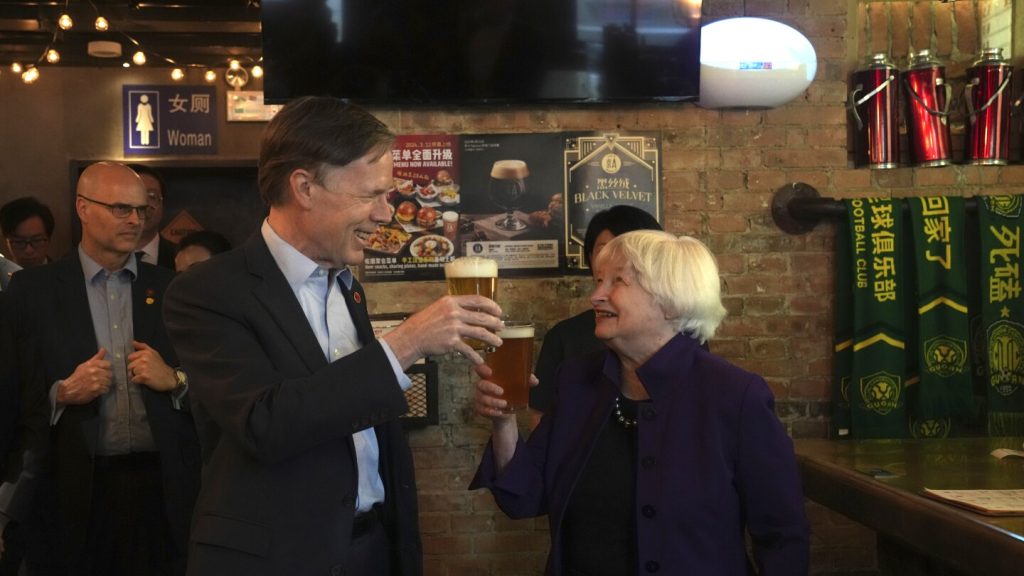U.S. Treasury Secretary Janet Yellen and her team have concluded a series of meetings in China, where they aimed to address major issues between the two countries. Yellen’s primary focus was on unfair trade practices, particularly concerning Beijing’s economic model and trade policies that put American companies and workers at a disadvantage. She highlighted the Chinese government’s subsidies and policy support for industries like solar panels and electric vehicles, leading to overcapacity and dominating the global market. The discussions emphasized the importance of balanced economic growth and the need for intensive exchanges to achieve this goal.
Another key agenda during the meetings was combating money laundering and related crimes, especially in the financial systems of both countries. The U.S. Treasury and the Chinese central bank agreed to cooperate on stopping money laundering activities, particularly those linked to the trafficking of precursor chemicals for substances like fentanyl. The formation of a joint working group will facilitate information exchange and coordination to disrupt the flow of these chemicals into the U.S. and Mexico. This collaborative effort is part of broader economic working groups established by the two nations last September.
The issue of banning the social media app TikTok, owned by Chinese parent company ByteDance, was also raised during the meetings. While the Chinese firm has proposed data security measures to address national security concerns, U.S. lawmakers have pushed for a ban or divestment of the company’s interests. Yellen expressed support for addressing national security issues related to sensitive personal data and acknowledged the differences in regulating social media apps between the two countries. However, little progress was made on this issue during the discussions in China.
In terms of financial stability, the U.S. and China announced an agreement to work closely on issues related to financial resilience and coordination in case of a bank failure. Financial regulators from both countries will conduct exercises simulating the failure of a large bank to determine effective coordination strategies and prevent potential stress on the global financial system. Yellen emphasized the importance of communication and cooperation between American and Chinese financial regulators to avoid financial crises with significant ramifications.
Yellen’s visit to China also attracted attention for her culinary experiences, as she is known as a foodie celebrity in the country since trying psychedelic mushrooms in Beijing last year. During this trip, she dined at popular restaurants in Beijing and Guangzhou, including a Sichuan restaurant and the Beijing International Hotel. Her last evening in China was spent at a local brewery in Beijing, where she enjoyed a craft beer made with American hops. Yellen’s dining choices were closely followed on social media, reflecting her reputation as a food enthusiast in China and adding a personal touch to her diplomatic visit.
Overall, the meetings between Yellen and Chinese officials addressed significant economic and security issues, highlighting the complexities and challenges in the relationship between the two countries. While progress was made on certain areas such as trade practices and money laundering cooperation, unresolved issues like the TikTok ban and broader geopolitical tensions remain. The collaborative efforts in financial stability and information exchange demonstrate a willingness to address shared concerns and promote stability in the global economy. Yellen’s visit not only had diplomatic significance but also showcased her personal interests and engagement with Chinese culture, adding a human touch to high-level discussions between the world’s two largest economies.


